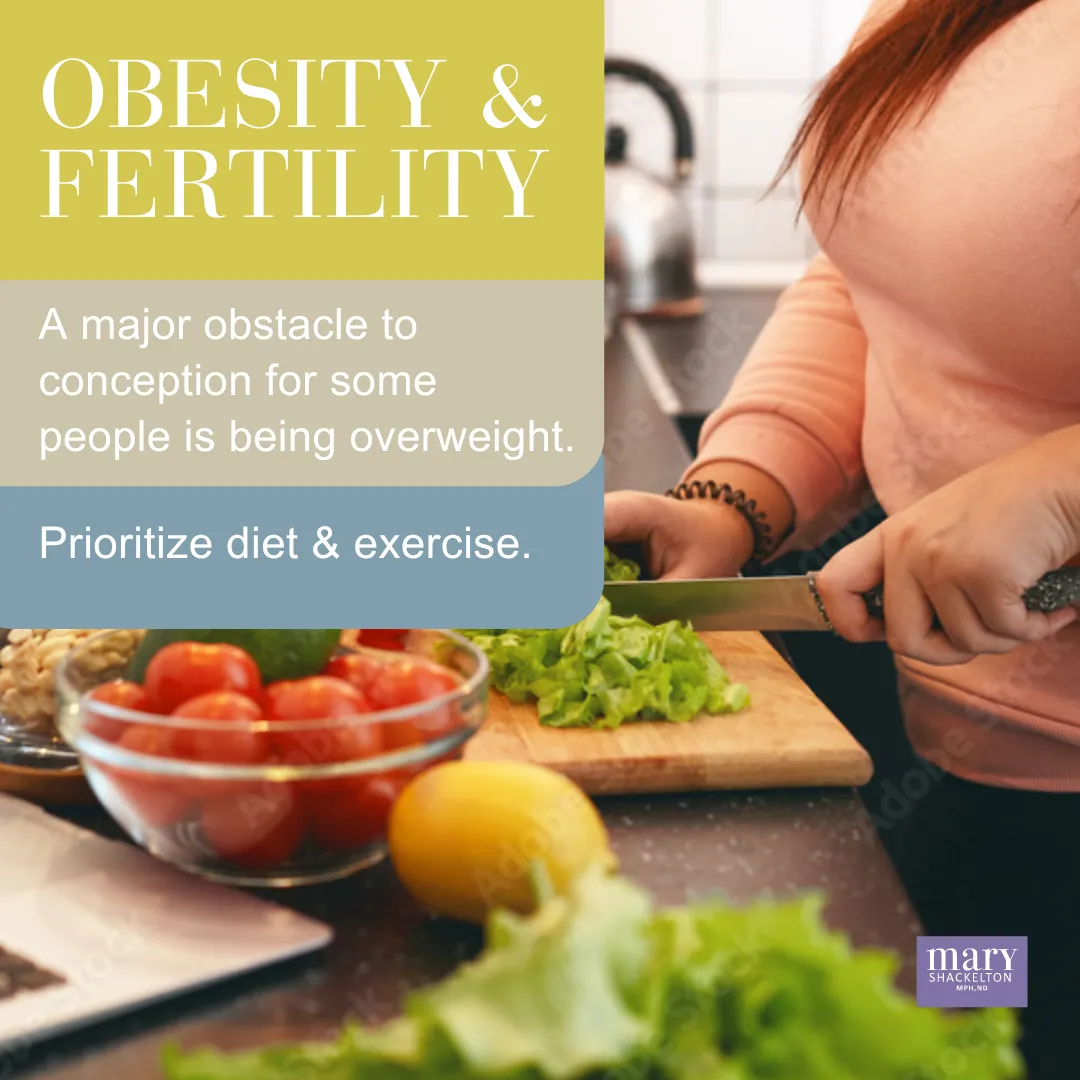
Blood Sugar and Fertility:
Balance Your Blood Sugar to Improve Your Fertility
Irregular blood sugar levels, either high or low, will impact healthy reproductive hormones.
IMPROVE YOUR FERTILITY BY BALANCING YOUR BLOOD SUGAR LEVELS
Many women become focused on just their hormones on their fertility journey and may be completely unaware that the simple act of balancing blood sugar is a tool to enhance conception. We often think of blood sugar balance as something that happens in one day and starts over the next day. The truth is, blood sugar balance happens on a continuum over several days. In other words, what you did this past weekend with your dietary and nutrient intake is likely impacting you several days later.
I used to think that midnight was this magical moment where blood sugar numbers were zeroed out and you started from a balanced place every morning. That is not exactly what happens. The good news is that realizing this can help you make informed decisions about how to use a diet to stabilize your blood sugar, and this has important impacts on fertility.
An important strategy for helping women conceive is helping them manage their blood glucose levels, or blood sugar. This is a tool that everyone will benefit from, but those who are trying to conceive will notice improvements in ovulation, weight management, adrenal function, mood, focus and concentration, and sleep when their blood sugar is optimized.

How does blood sugar affect your ability to conceive?
Over time, elevated blood sugar level are damaging to just about every tissue in your body,
Blood sugar, necessary to fuel your brain and muscles, is the amount of glucose in your bloodstream. Ideally, maintaining stable blood sugar levels throughout the day within the range of 70-120 is optimal. When people are diagnosed with diabetes, their blood sugar can be over 300, which is really high. When people are hypoglycemic (low blood sugar), their levels will be under 70 for a portion of the day, often causing uncomfortable symptoms such as irritability, headaches, inability to focus and fatigue. When your blood sugar is irregular, either high or low, this impacts how you make reproductive hormones. One of the biggest impacts of irregular blood sugar is on adrenal gland secretion of cortisol. When your blood sugar is unstable, you make more cortisol, which tells the liver to release more glucose to keep your muscles and brain fueled up.
The production of cortisol requires the use of progesterone, a key hormone for ovulation and maintenance of a pregnancy. If your blood sugar is high or low, you are likely making more cortisol. When you are making more cortisol, you will need more progesterone to do so and will “steal” this progesterone from your reproductive cycle to produce cortisol. This is all happening in the background when you might not even be aware of it. Your glucose and cortisol signaling is busy trying to regulate itself in response to what you are eating.
Over time, elevated blood sugar is damaging to just about every tissue in your body, it is inflammatory and damaging to the interior lining of your blood vessels and it also greatly impacts the health of your eggs and partner's sperm. (1) The best news is, your body is incredibly responsive to addressing your blood sugar levels with diet and exercise. Within a week, you could see drastic changes to blood sugar levels, and within a few months, this will begin to change your reproductive hormone levels.
How to stabilize blood sugar to optimize fertility
The best way to learn how to stabilize your blood sugar is to wear a Continuous Glucose Monitor (CGM). This monitor is worn on the back of your arm for 2 weeks, and it sends your glucose levels to an app on your phone, which tracks your daily variations in blood sugar 24 hours per day. This helps you learn what happens to your blood sugar levels when you eat certain foods, in real time. You can then make better healthier dietary choices that will support stabilizing your blood sugar. Here is the link to order a CGM if you would like to try this, I highly recommend it! Click here: NUTRISENSE

How does exercise impact blood sugar & fertility?
When you exercise, you use the stored glucose in your muscles or stored glycogen from your liver as fuel. As you exercise, you will replace that used up glucose with the glucose in your blood stream from your most recent meal or snack. Ideally, you should have a good balance of use and replacement of glucose. This means, engaging your muscles, depleting your glucose, and then replacing it with the glucose from your next meal rather than eating high levels of carbohydrates and not using that fuel in your muscles due to a sedentary lifestyle. Consequently your net energy storage of glucose will be high and this can cause weight gain (excess stored energy) and increases in insulin secretion. Exercise is a key regulator of blood sugar levels and this impacts fertility. (2)


Did you know adrenal glands have a big impact on your fertility?

Your adrenal glands are tiny glands that sit on top of your kidneys. They make Estrogen, Progesterone, Testosterone, DHEA, and Cortisol, the main hormone made by the adrenals. The link between adrenal function and fertility is related to how your adrenals make cortisol in response to blood sugar, stress, exercise and more. Again, if your blood sugar gets too low - let's say in the middle of the night - your adrenal glands may make more cortisol to get a message to the liver telling it to manufacture glucose to keep your brain fed. Often this cortisol surge causes you to wake up for no apparent reason.
Unstable blood sugar can cause your adrenal glands to work harder than they would otherwise, making cortisol at inappropriate times of the day or all day long which will tire them out. The long term effects of this can be adrenal dysregulation: not making enough cortisol, making too much cortisol, or making it at the wrong time of day causing either day time fatigue or insomnia.
Additionally, if your adrenal glands are tired they will produce less hormones overall (e.g. such as estrogen and progesterone) causing hormone imbalances which will impact ovulation and your ability to conceive. (3)
Can balancing your blood sugar and your sleep improve fertility?
If you are not able to fall asleep or stay asleep, it could be that your blood sugar is not balanced

Your blood sugar has quite an impact on your sleep, believe it or not. If your blood sugar is unstable, you might notice disruptions in your sleep. If you are not able to fall asleep or stay asleep, it could be that your blood sugar is not balanced. When your blood sugar goes too low - either from eating too many carbs during the day or not eating enough food, your adrenals glands make cortisol, which is like adrenaline.
When you have a surge of cortisol, it is like being in the fight or flight stage and you will either wake up from a sound sleep or be unable to fall asleep.
Fixing this can be as simple as increasing protein and fat throughout the day and lowering your carb intake. This truly is a simple solution.
We are programmed to eat simple carbs: they are tasty, highly available everywhere we look, extremely addictive, comforting, and socially celebrated at all ages. However, reducing simple carb intake stabilizes your blood sugar and can impact every single aspect of your health, especially your sleep. If your sleep is disrupted, tune into the sources of carbs you are eating. Are they man-made carbs? Things that come in packages or are they fruits and vegetables? Avoid the carbs in packages and add more protein and fat to your diet for starters and see how your sleep regulates itself.
The more stable your blood sugar is, the more regulated your sleep, and both have big impacts on fertility. As your sleep becomes more regulated, your adrenals will also become more stable. This lowers the cortisol surge, reducing the“progesterone steal”, which means that you will have more progesterone available for a healthy reproductive cycle and optimal ovulation.
How to optimize blood sugar and insulin to boost your fertility naturally
Insulin is one of the more damaging hormones for fertility. Insulin increases testosterone secretion, which affects ovulation, causing your eggs to be unavailable in the menstrual cycle, and that means you might not be able to ovulate (and thus become pregnant). We get more insulin by consuming more carbohydrates, especially the high glycemic carbs such cakes, cookies, pasta, breads, crackers, chips and anything with sugar in it. Excessive insulin over a period of time also causes weight gain and contributes to PCOS (Polycystic Ovarian Function) - a condition that is characterized by elevated testosterone–this interferes with ovulation and causes other metabolic challenges.
For my patients with PCOS, my recommendations include eating no more than 60 grams of carbs per day to turn this around. By lowering insulin levels through lowering sugar intake, you will make less insulin and this reduces testosterone— your hormones and your ovulation will become more regulated. And while you are lowering your carb intake, it is recommended to eat more protein and fat which both help to stabilize blood sugar irregularities.
Can insulin and weight gain lower your fertility?
Insulin's message to the abdomen is to "store fat here" right around your middle. This is called "the insulin belt" and is where we are storing extra nutrients in the form of fat. So the more carbs you eat, the more insulin you make, and the more insulin you make the more this disrupts ovulation.
Insulin production increases testosterone secretion, and having elevated levels of testosterone can impair ovulation. When you reduce your blood sugar through dietary changes and exercise, you will automatically lower insulin secretion and this will help your weight loss efforts and reduce your risk of cardiovascular disease, in addition to helping you establish regular ovulation and balance your menstrual cycle.


Obesity and fertility:
How your weight may impact fertility
The higher the BMI (body mass index), the further you are away from your ideal weight and the more insulin you are making

One major obstacle to conception for some people is being overweight or having a high BMI (body mass index). The BMI is a way to calculate height and weight and the goal is to be in the 19-24 range. BMI levels correlate with certain diagnoses such as cardiovascular disease and diabetes.
You can calculate your BMI by clicking here. The higher the BMI, the further you are away from your ideal weight and the more insulin you are making. Remember, insulin sends the message to store extra fat around your waist line which is then hard to get rid of. Obese women undergo disruptions of the endocrine system and frequently suffer menstrual dysfunction, leading to anovulation and infertility. (4)High blood sugar significantly contributes to excessive insulin levels, which in turn can lead to obesity. Lowering your blood sugar levels is crucial for promoting successful conception.
The best diet to balance blood sugar and increase fertility
Eating Simple carbohydrates (e.g. sugar, pasta, cakes, cookies, pies, pizza, even potatoes if not balanced with other foods) increases insulin secretion from the pancreas. Insulin's job is to keep blood sugar stable and in the optimal range. When you have had lots of sugar and thus insulin over many years, your cells become "deaf" to this hormone and your pancreas keeps making more and more of it. The more insulin you make, the more testosterone you also make. This can impair ovulation, preventing conception.


The best diet to naturally boost your fertility includes the following:
Enjoy lean proteins, healthy fats, leafy greens, vegetables, low glycemic fruits, avoid simple carbs and table sugar to balance blood sugar and increase fertility
ONE Increase your intake of fresh fruits and vegetables, the goal is approximately 7-9 servings per day. I know that sounds like a lot but it is actually easier than itsounds. Roughly, 1 cup of raw or 1/2 cup of cooked vegetables/fruits equals one serving. A large salad consumed once a day could provide 4-5 servings of vegetables and/or fruits. Additionally, adding a piece of fruit, a smoothie, or a vegetable at dinner helps meet your daily serving goals.
TWO Ensure you consume an adequate amount of protein, as it serves as the building block for healthy cells. Aim to include protein in every meal or snack, and consider increasing your intake if you're physically active or recovering from an injury. Most of my patients think they eat enough protein but are not consuming enough to fuel important bodily functions. A basic guideline for a minimum daily intake of protein is to eat your weight in kilograms x 1.4 grams (e.g. 150 lbs / 2.2= 68 kg x1.4 = 95 grams per day for a 150 lb person).
THREE Avoid table sugar and replace it with healthy sweeteners such as honey maple syrup or stevia.
FOUR Eliminate alcohol, marijuana and recreational drugs as they reduce sperm quality and quantity and have been linked to issues with conception. (5)
FIVE Lower simple carbohydrates: The key to good blood sugar stability is to drastically reduce your consumption of simple carbohydrates in your diet. These are the "man-made" carbs in packages that are also known as convenience foods: crackers, chips, pasta, breads, pies, cakes -- you get the picture. Focus instead on getting low glycemic carbs from fruits and veggies: Apples, berries, oranges, pears, peaches, cauliflower, broccoli, Brussel sprouts, leafy greens, onions, tomatoes, cabbage and squashes.
ONE Increase your intake of fresh fruits and vegetables, the goal is approximately 7-9 servings per day. I know that sounds like a lot but it is actually easier than itsounds. Roughly, 1 cup of raw or 1/2 cup of cooked vegetables/fruits equals one serving. A large salad consumed once a day could provide 4-5 servings of vegetables and/or fruits. Additionally, adding a piece of fruit, a smoothie, or a vegetable at dinner helps meet your daily serving goals.
TWO Ensure you consume an adequate amount of protein, as it serves as the building block for healthy cells. Aim to include protein in every meal or snack, and consider increasing your intake if you're physically active or recovering from an injury. Most of my patients think they eat enough protein but are not consuming enough to fuel important bodily functions. A basic guideline for a minimum daily intake of protein is to eat your weight in kilograms x 1.4 grams (e.g. 150 lbs / 2.2= 68 kg x1.4 = 95 grams per day for a 150 lb person).
THREE Avoid table sugar and replace it with healthy sweeteners such as honey maple syrup or stevia.
FOUR Eliminate alcohol, marijuana and recreational drugs as they reduce sperm quality and quantity and have been linked to issues with conception. (5)
FIVE Lower simple carbohydrates: The key to good blood sugar stability is to drastically reduce your consumption of simple carbohydrates in your diet. These are the "man-made" carbs in packages that are also known as convenience foods: crackers, chips, pasta, breads, pies, cakes -- you get the picture. Focus instead on getting low glycemic carbs from fruits and veggies: Apples, berries, oranges, pears, peaches, cauliflower, broccoli, Brussel sprouts, leafy greens, onions, tomatoes, cabbage and squashes.

While the above suggested changes might cause you to have to take a look at your dietary practices and lifestyle factors, these are simple actions to take that have profound impacts on your ability to conceive a healthy baby.

Hi, I am Dr. Mary Shackelton, Naturopathic Doctor, who practices integrative medicine with an emphasis on women’s health.
My current focus is on Environmental Medicine and the conditions that are associated with toxic exposures: auto-immune diseases, fatigue, cognitive decline, hormone imbalances, mitochondrial dysfunction, and neurologic conditions.
Schedule your one-on-one consultation to help you lay a strong foundation for successfully conceiving and to help you build an internal terrain that is capable of creating a vital child.


ARE YOU STRUGGLING WITH FERTILITY?
CLICK BELOW TO LEARN MORE
I can help you remove obstacles to healthy conception
2024 maryshackelton.com | All Rights Reserved | Privacy Policy | Terms & Conditions
Materials on this website are provided for informational or educational purposes only, and are not intended as a substitute for the advice of your physician or healthcare professional.
Always consult with your physician or healthcare professional before embarking on any options offered here on this website.


